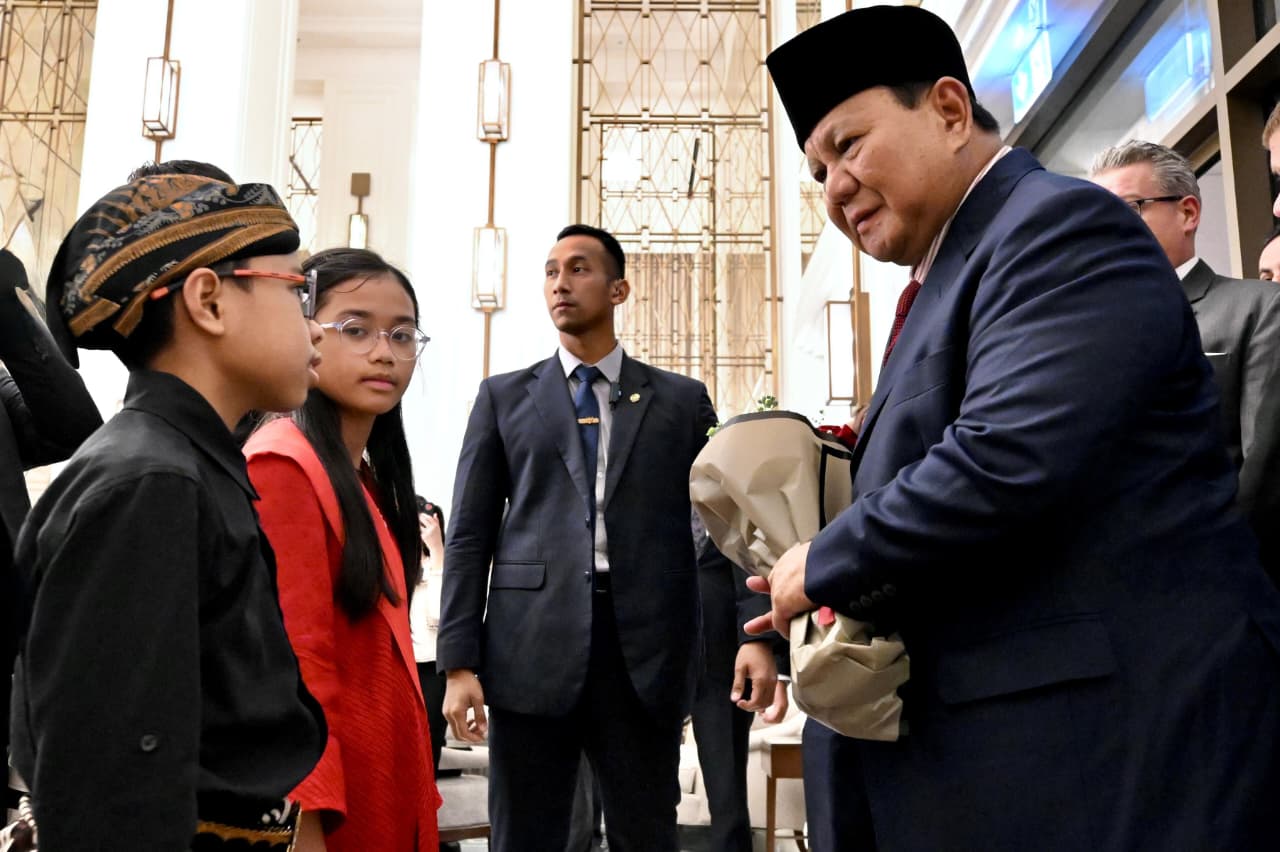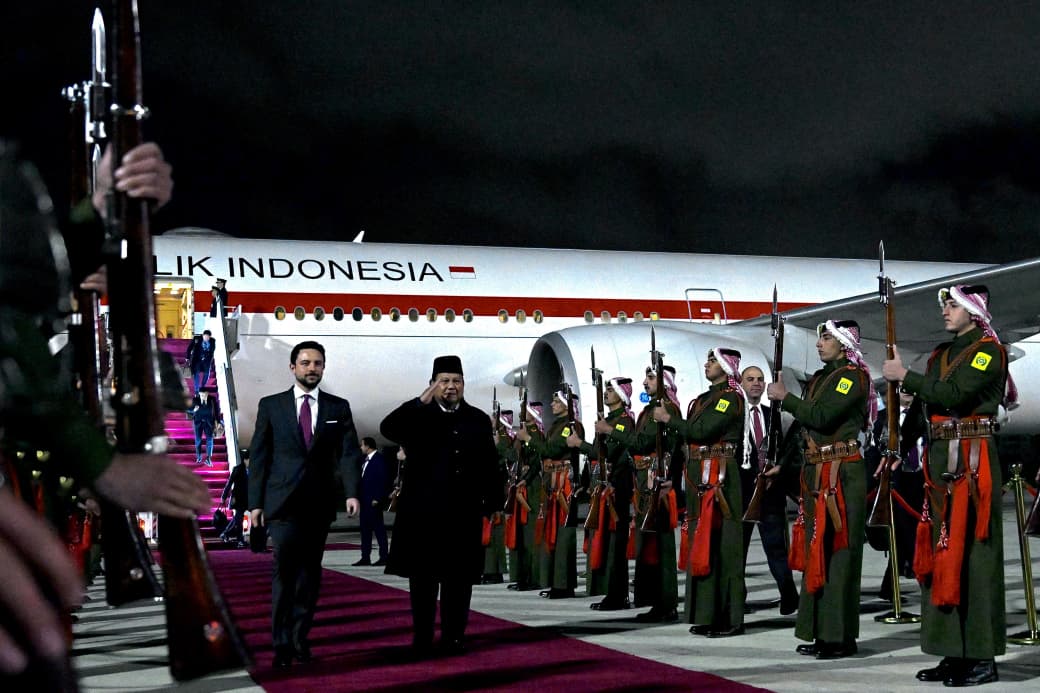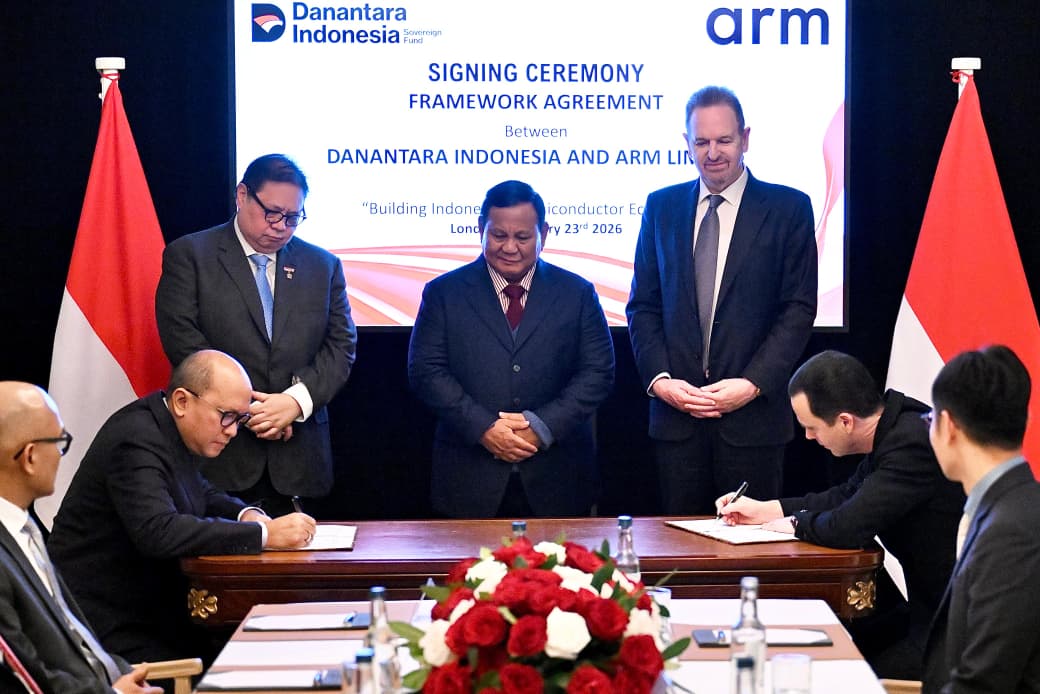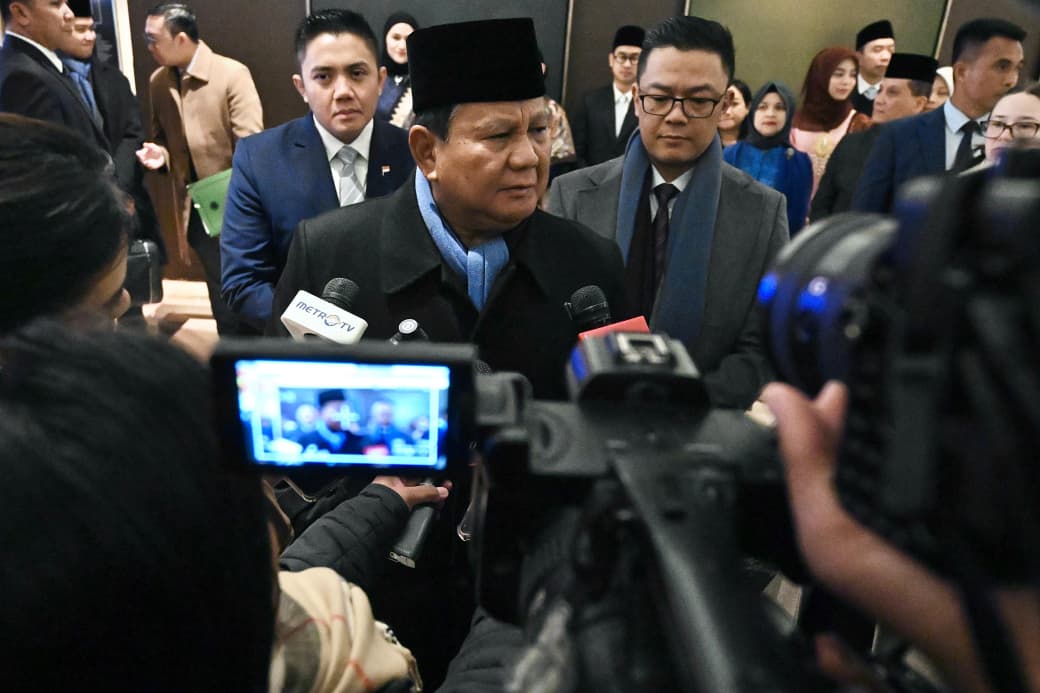Indonesia Still Has Many Untapped Potentials in Sharia Economy, President Jokowi Says
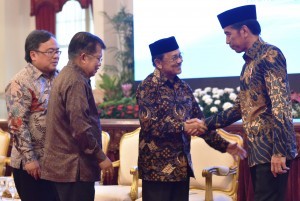
President Jokowi shakes hands with former President BJ. Habibie after launching KNKS at the Merdeka Palace, Jakarta, Thursday (27/7) (Photo by: Rahmat/Public Relations Division)
Although Indonesia has the biggest number of sharia financial institutions in the world which includes 34 sharia banks, 58 sharia insurance companies (also known as Operator Takaful), seven sharia venture capitals or sharia pawnshops and more than 5,000 Sharia Micro Financial Institutions, as well as 23 million costumers of sharia products, the country still many untapped potentials thanks its very large market that it has, according to President Joko Jokowi Widodo.
The President also said that share market of sharia banks in 2016 was only 5.3 percent of the whole assets of the national banking industries.
This is a big opportunity that we must capitalize on. We must not let other countries capitalize on this opportunity instead, the President said during the launching of the National Committee of Sharia Finance (KNKS) and the opening of the National Working Silaturahmi (Amicable Gathering) (SILAKNAS) of the Indonesian Islamic Economist Association (IAEI) at the State Palace, Jakarta, Thursday (27/7).
The President added that the 5.3 percent figure is still lower compared to that of other countries such as Saudi Arabia (51.1 percent), Malaysia (23.8 percent), the United Arab Emirates (19.6 percent). In fact, Indonesia has the largest Moslem population in the world, the President said.
Being the country with the largest Moslem population in the world, Indonesia, President Jokowi said, should and must become a leader of sharia economy and become the worlds sharia financial center. It must be like that and it is supposed to be like that but it has not been realized yet, the President said.
However, President Jokowi is optimistic that if sharia financial industries continue to be seriously strengthened, developed, and promoted, they will become one of the main solutions in financing the countrys development. Be it for the peoples economic development, for building infrastructures such as roads, bridges, seaports, to power plants, or to finance social programs aimed at alleviating poverty and reducing social gap. We can make the most of sharia financial industries, the President said.
As for the efforts to alleviate poverty and reduce social gap, President Jokowi said that the Government has to be able to make the most of religious-social funds such as zakat (alms) that still have big potentials. In addition, the President added, Indonesia also still has charitable land (tanah wakaf) with a very big total land. Based on the data that I have, we have 4.3 billion square meters of charitable land. Its huge but the majority has not been used for productive activities because in general they are mostly used to build mosques or cemeteries, the President said.
President Jokowi went on to say that cash wakaf that has been collected is only around Rp22 billion and the money also has to be further developed so results benefits gained the wakaf can be used for productive activities such as to develop peoples economy, to empower Micro, Small, and Medium Enterprises (MSMEs), so the impacts can directly be felt by those who need them.
On that occasion, President Jokowi also mentioned the establishment of the Hajj Fund Management Agency (BPKH) that manages the peoples money amounting to between Rp80 93 trillion. According to the President, if the money is well used for productive things, it will accelerate the countrys development. I said it yesterday that the hajj money funds can be used for productive things, the President said.
President Jokowi said that other countries also use these hajj funds. The President cited the example of building a toll road which is safe and will not bring financial losses. The hajj funds can also be used to build seaports and by using the funds, it will give big profits and hajj fares can later be reduced, the President added.
However, if we use the funds for building toll roads, airports, in shaa Allah, it wont bring financial losses. And Ive already said that we should give opportunities to place our hajj funds to be used for productive things because these are peoples money. We have to be careful (in using them), the President said.
President Jokowi also pledged that the Government would continue to encourage the KNKS so it can launch programs that can develop sharia finance and sharia economy so that the 5.3% of market share of sharia finance can be increased.
Also attending the even were former President BJ. Habibie, Vice President Jusuf Kalla, Coordinating Minister for the Economy Darmin Nasution, Minister of National Development Planning/Head of the National Development Planning Board (Bappenas) Bambang Brodjonegoro, and Chairman of the Indonesian Ulema Council (MUI) KH. Maruf Amin. (DND/RAH/ES) (EP/YM/Naster)





